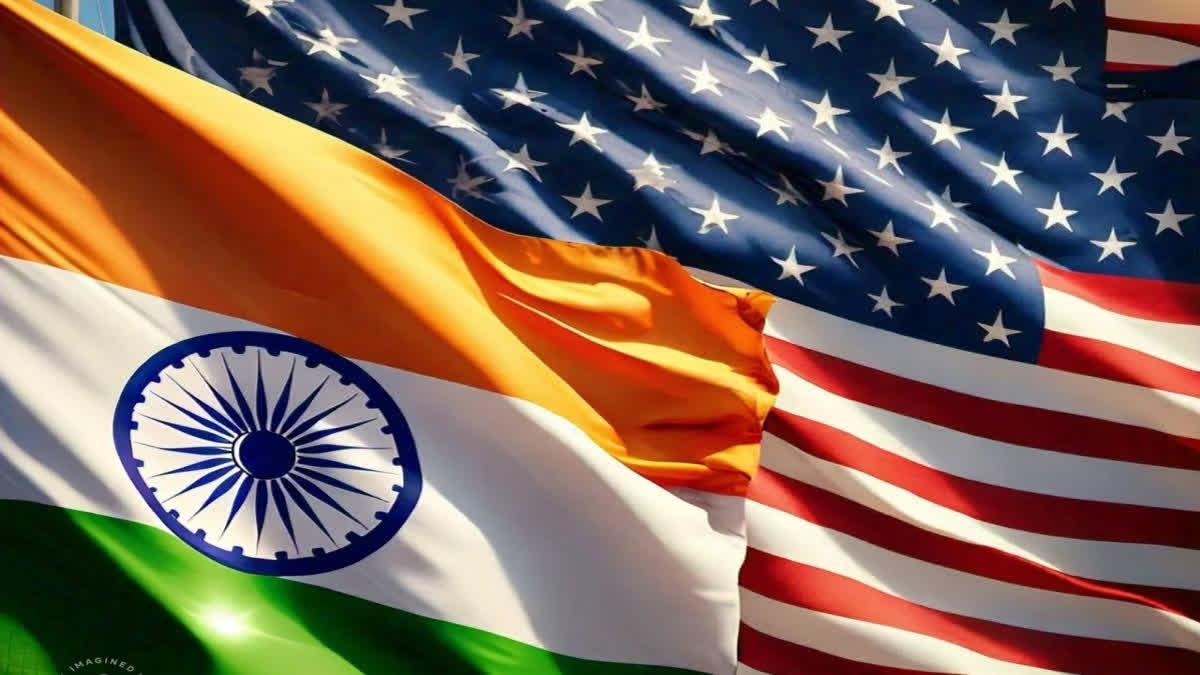New Delhi: The Ministry of External Affairs (MEA) issued a strong statement on Saturday regarding the recent sanctions imposed by the United States on over a dozen Indian companies. These sanctions stem from allegations of the companies’ connections to Russia amid the ongoing war in Ukraine, highlighting the intricate geopolitical landscape surrounding this issue.
On October 30, the US Treasury Department took the significant step of announcing sanctions against nearly 400 firms and individuals from 17 different countries. They categorised these entities as “Third-Country Sanctions Evaders,” a designation that underscores the seriousness of the allegations. Included in this extensive list were 19 Indian companies, which the US claims have played a role in supporting Russia during its conflict with Ukraine, complicating India’s diplomatic position.
In response to these developments, the MEA articulated a robust defence of India’s legal framework, stating, “We have seen reports on US sanctions. India possesses a comprehensive legal and regulatory structure governing strategic trade and non-proliferation controls.”
During the regular media briefing, the Ministry’s spokesperson, Randhir Jaiswal, emphasised that India is an active participant in three prominent multilateral export control regimes—the Wassenaar Arrangement, the Australia Group, and the Missile Technology Control Regime.
The MEA asserted that India has been effectively implementing relevant sanctions from the United Nations Security Council (UNSC), particularly UNSC resolution 1540, which pertains to non-proliferation.
He said, "Our understanding is that the transactions and companies listed in these sanctions do not violate Indian laws.” Despite this clarification, the Ministry stressed the importance of maintaining India's established non-proliferation credentials.
"To that end, they are engaging with various Indian departments and agencies to educate Indian companies on the relevant export control provisions," the MEA said.
The MEA also noted that the Government of India is conducting regular outreach events aimed at strategic trade and export control for Indian industries and stakeholders.
The Ministry has also established channels of communication with US authorities to address and clarify any issues arising from the sanctions. Among the Indian companies targeted by these sanctions is Ascend Aviation India Private Limited. According to the US State Department, this company allegedly sent over 700 shipments to Russian entities between March 2023 and March 2024.
These shipments reportedly included aircraft components valued at over $200,000, raising concerns about the potential implications for India’s defence and aerospace industry. Other Indian businesses listed in the sanctions include Mask Trans, TSMD Global, Elektron Komponent, and Futrevo.
This significant US action comes shortly after it named an Indian official in a purported plot linked to a foiled murder-for-hire involving Khalistani separatist Gurpatwant Singh Pannun.
Previous US sanctions on Indian companies
This isn't the first instance of US sanctions impacting Indian companies. In November 2023, Si2 Microsystems was similarly targeted for allegedly supplying restricted items to Russia without a license.
In 1998, following India's nuclear tests, BEL was included in U.S. sanctions under the Iran Non-proliferation Act due to its dealings with Iran. In the late 1990s, certain entities associated with the Indian Space Research Organisation were sanctioned for technology transfers that the U.S. believed could contribute to missile development.
In 2009, Satyam was implicated in a major accounting scandal. While the U.S. did not impose direct sanctions, the fallout impacted its business dealings with American firms. In recent years, several Indian companies involved in trade with Iran faced US sanctions as part of broader efforts to curb Iran's nuclear program.
This included restrictions on companies exporting goods to or importing oil from Iran. Some Indian defence firms have faced scrutiny and potential sanctions due to their relationships with countries like Russia or due to involvement in activities that the U.S. views as contrary to its foreign policy interests.



